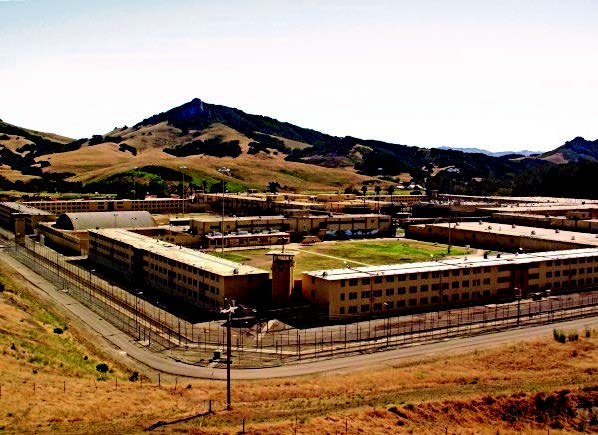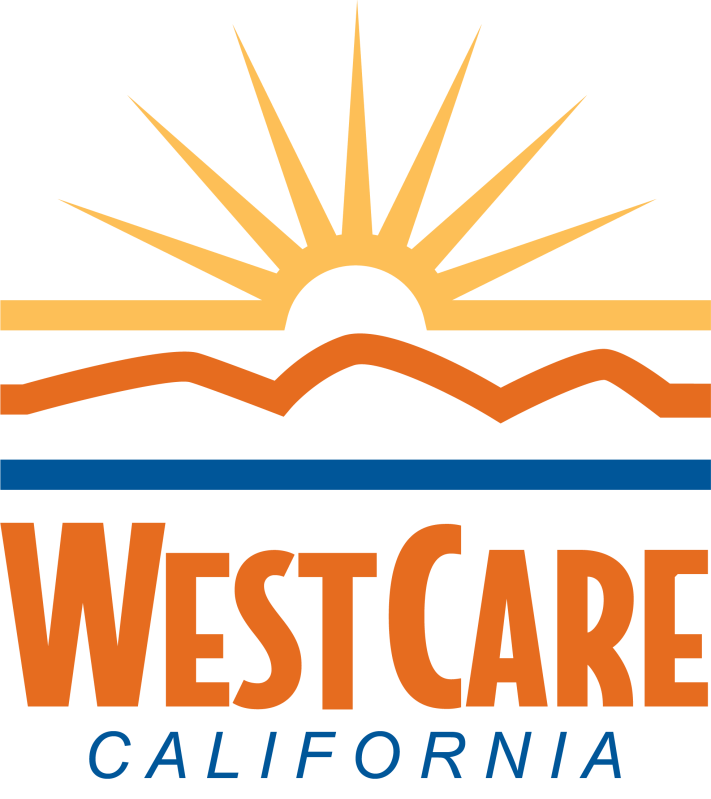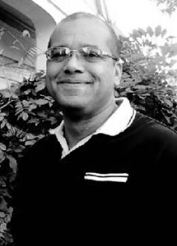“I was faced with the choice to deviate into the self defeating
acts and behaviors of my choosing or to find a way to excel.”-Jason V. Santibanez
It has taken many years to rebound from the mistakes that I made in my youth. In 1994, I committed a crime that resulted in a 25-to-life sentence plus an additional 7 years; ultimately a 32-years-to-life sentence. I was seventeen at the time I did the crime. By the time the court process was over, I was with-in 30 days of my nineteenth birthday and I was bound to San Quentin to start serving my life sentence.
It was a distinct day for me in 2003 that I decided to turn my will and my life over to the care of what I came to believe was a Higher Power. I was in a cell at Old Folsom and it was my seventh prison institution. I was asking myself if my life amounted to being in a cage for the rest of my life, and it dawned on me, ‘That just don’t make sense.’ Here I am, fully functioning and healthy with basic amenities. Someone with insight beyond my own said I have value and worth. Societies will for me became my Higher Power.
It was not long after that I found myself sitting in administrative segregation (ad-seg). It was a moment in my life that I truly beat myself mentally and emotionally. Internally, I had felt that I had come to a spiritual paradigm shift with my purpose and meaning in life; yet here I was sitting in ad-seg. It was not long until I was on my way to California Men’s Colony-East (CMC). In hindsight, this move to CMC solidified my changed mindset and what I have come to learn through my life experience is that change can be made by environment as much by will and desire.
Up until then, (1994-2003) I had been placed in primarily Level Four Institutions (Maximum Security). Arriving at CMC was like going from Junior High School to College. Inmates were walking all over the place, staff appeared nonchalant and there were announcements over the Public Address System such as Vocations, Yolk Fellows, AA & NA, Peer Education, Education, Prison Industry Authority, Work and School. The entire institution was like an activity hub. I got my start going to what was called Progressive Growth Seminar. By the time I left CMC in 2008, I was a Peer Health Educator. I had completed a vocational trade in Office Services and Related Technologies. I was a Laubach Literacy Trained Tutor. A lot of the intrinsic work I had done came through various correspondence courses including Corrections Learning Network, Federal Emergency Management Courses and Bible correspondence courses from various agencies including the American Bible Academy, Emmaus and Crossroads. Basically, what it boils down to for me is that for my change process, even though it was internal, I had found a supportive environment to cement the process.
I then found myself at Solano and was put in a dorm setting. While other inmates were doing things that they shouldn’t have been doing, my saving grace was my fourth direction in which I dubbed my “Sanity Wall.” I would face that wall at all hours of the day fighting my internal triggers and praying for guidance and deliverance. I was faced with the choice to deviate into the self-defeating acts and behaviors of my choosing or to find a way to excel. My bunkmate was in school. His bottom bunk would be open during the day. I found a way to isolate myself there at times and I managed to get enrolled to Coastline Community College. From there, I found myself a clerical job and started facilitating self-help groups called Project Pride.
First and foremost, it affected me by proxy (being in the right place at the right time) because it allotted a certain amount of money to be used to train inmates to become peer mentors. The money was spent to train inmates to become Certified Alcohol and Drug Counselors through The California Association of Alcoholism and Drug Abuse Counselors (Now known as CCAPP). The first class of mentors for this pilot program was 50 inmates from Solano. I did not apply, but rather made a conscious decision to observe the results and the process. I had seen plenty of pilot programs come and go by that time in various fashions. Overall, by waiting, I witnessed men (prisoners) become scholars, many of which I was living with in the Mentor Building. On one hand I was jealous, on the other I became determined to be in the second class of mentors. In 2010, I became certified as a Certified Substance Abuse Counselor- I with the ACADC Institute; one step in the right direction. Then I applied to be selected not once, but three times. Eventually, I was selected to be interviewed to become not only a Peer Mentor, but a certified Drug and Alcohol Counselor with the State of California. I was handpicked amongst thousands of inmates in CDCR for this position of prestige amongst my peers.

The provider at the time was Human Potential Consultants. In July of 2011, I began my process. I had to go through 90 days of a Substance Abuse Program (SAP). This helped me understand what modeling was as well as what a parallel process is. By the end of October of 2011, I had become a SAP Alumni and the process to become a drug counselor began. This pilot program now called the Offender Mentor Certification Program (OMCP) is an expedited process that trained me to become a counselor. The didactic portion consisted of learning the introduction and overview of AOD, law and ethics, physiology and pharmacology, case management, individual group and family counseling and personal and professional growth. The practicum was 255 hours of application of the above principles in each of the 12 Core Functions. By the time I was afforded the opportunity to take the test, it was May of 2012. I passed the test. In July of 2012, I was transferred to Substance Abuse Treatment Facility (SATF) as part of my commitment and vision of AB 900 to spread the knowledge and skill to other treatment programs in the prison system.
I then got certified as a Network Cabling Specialist and eventually found myself on the door step of HealthRight 360 at SATF. I was welcomed as a peer by the mentors and challenged to adjust to my new environment while adopting the Therapeutic Community model of treatment.
From 2008 – 2013, I did manage to stay enrolled in college. In May of 2013, I graduated from Lassen Community College with an Associate of Arts Degree in Social Science. When it came to the Board of Prison Hearings (BPH), they knew I had done the work that reflected in my personal change process. By May of 2014, WestCare became the new provider at SATF and on October 31, 2014, I was released from prison. As of right now, it was less than a year ago. I cannot even come up with all the names of the people who supported me and provided guidance and insights along the way, they were numerous to say the least.
I was released to Tri County Treatment in Oroville 20 years and 9 months after I was initially incarcerated. I never had a driver’s license, never contributed to Social Security, had no assets, was basically penniless and without any tangible adult life experiences as a free person. So, again I turned my will and my life over to the care of those whom I previously believed to be the driving power behind my Higher Power. I followed each and every rule they told me to. I did not ask for exceptions, I did all my assignments as if I never facilitated one of them. By the end of my 90 days at the level Residential Treatment, having been STOP funded via WestCare, I was encouraged to enroll into school. By May of 2015, I finished a semester at Butte College with four A’s and one B. I was also working in my downtime as a temp employee through Express Employment Professionals. I had interviewed or submitted job applications with Kirby-Vacuum Cleaners, Marshalls, Home Depot, the local cannery and any number of other venues in the search for long term viable employment.
Then one fateful day, the Director of Tri County came into my room at the level of Sober Living between 10:00 and 11:00 while I was sleeping off a late night working at a factory in Gridley, with the news that any OMCP graduate on parole could now work for STOP/WestCare funded facilities. Basically, she could legally hire me. I had one more job interview with Salvation Army as a Case Manager before I committed to this new opportunity. In July, I was hired on as Support Staff at Tri County Treatment. Then came the 90 provisional, a review period conducted on behalf of or by CDCR for all employees. I was initially denied the ability to go beyond the title of Support Staff. My Director appealed the process with a 22 page sub-mission and waited. On Tuesday, October 13, 2015, I was instructed to call WestCare personnel in which I was told, ‘You are the first parolee authorized by CDCR to work in the capacity as Counselor to other parolees.’ All I can say is that I had goosebumps and joy.

I have a professional rapport with WestCare, staff here at Tri County Treatment, Parole, Drug Court, Probation and Behavioral Health. I just recently accumulated enough hours to advance to the level of Certified Alcohol and Drug Counselor-I. I continued to maintain my obligation as a Certified Peer Mentor as I continue to serve as a role model of a parallel process for others to reenter society and become productive. I am so thankful to be a part of a vision that is more far reaching then my own. I have been blessed to stay connected to supportive environments that encourage recovery and change. I continue to be guided by the will of my Higher Power as I am committed to aid society as I continue down my path of being recognized as a Change Agent.”
With humility and regards,
Jason V. Santibanez

For over 40 years, WestCare California has been providing an opportunity for individuals to lead fuller, richer lives. Our team of multi-cultural, experienced and credentialed staff is dedicated to providing the best care to everyone who enters our doors. Our goal is to uplift the human spirit by providing the skills and support necessary for individuals to achieve their dreams and transform their lives.
WestCare provides a wide spectrum of health and human services in both residential and outpatient environments. Our service domains include mental health & wellness, substance abuse and addiction treatment, housing opportunities, education & prevention, criminal justice and veterans programs. These services are available to adults, children, adolescents, and families.


